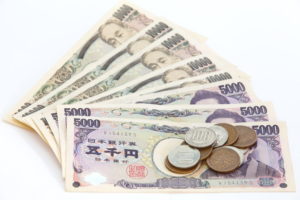Moving to Japan – what you need to know

Moving to Japan – what you need to know
Moving to Japan can be an exciting, yet daunting, prospect. A new country, a new language and an entirely new culture. Once you’ve made the decision, there are a lot of aspects to prepare for, some obvious, and some less obvious. The whole experience can be quite overwhelming, from getting a visa, to arranging accommodation and work, even down to the seemingly simple packing process. Here we have some of the tips to keep in mind when moving to Japan and how they could help you.
- Residence Card
One of the most important things you have as an expat living in Japan is your residence card. It is required to carry this at all times and police are able to check your card at any time. When entering Japan on a long-term visa, a residence card will be issued to you at the airport with all your relevant information. However, it is not complete until you visit the ward/city office of your area and register your permanent address. This procedure must be completed within 14 days of arrival in Japan. Simply head down to the ward/city office with your new residence card, passport and visa and the staff will help you out.
- Health insurance
Depending on your type of visa and work status, you may need to be enrolled in NHI (National Health Insurance). It is compulsory for all residents of Japan to have health insurance, however, you may be part of your company health insurance or on your spouse’s insurance. This isn’t always made clear, as there isn’t a set time frame like there is for address registration, but it is a good idea to get this set up as soon as possible. As the health insurance office is usually located in the ward office, it’s convenient to do at the same time as the address registration. It might end up as a long day at the ward office, but you will thank yourself later when you don’t have to keep coming back to the large and crowded ward office.
- Paperwork
As an extension of the above two, be prepared for paperwork. While Japan is often touted as a futuristic, high tech country, there are many aspects of society which still rely on fax machines and paper documents. If you are coming from a country where it has become standard to do taxes, applications and documentation online, it can seem quite cumbersome to suddenly have to write out your information multiple times in various forms, so it is helpful to be ready and understand that this is an inevitable part of your life now.

- Language
One of the most commonly-asked questions from people looking to move to Japan is “Can I move to Japan without knowing Japanese?”, and the answer is Yes! You can absolutely move to Japan without knowing the language, as long as you have a valid visa. However, the more Japanese you know, the easier life will be. It is not often advertised widely, but most ward offices offer free or very cheap Japanese lessons. They are a great way to start picking up the basics of Japanese conversation without paying for an expensive language school. As they are usually group lessons, it is also helpful for meeting new people. However, while you are learning, how should you navigate Japanese interactions? This may be a controversial opinion among foreign residents of Japan, but it is ok to rely on Google Translate at first. While it is well-known that Google Translate isn’t perfect when it comes to Japanese-English translation and is definitely not a tool to use long-term, it can usually get across the general meaning. Get the app on your phone and it will help you get through some of the initial necessary conversations.
- Recycling
This is an aspect that is easy to forget about before moving to Japan. Following recycling rules isn’t really relevant to traveling in Japan, beyond putting rubbish in the clearly-labelled public bins. However, when it comes to recycling as a resident, it’s a different story. The trash must be separated into various categories, each of which is collected on a different day. Unfortunately, I can’t give you the information about which categories or which days, as each ward differs in the schedule, categories used and strictness of the rules. Most ward offices have this information available on their website and if not, you can request a pamphlet from the ward office (a convenient time is while registering your address). It is great to get this information before or shortly after arriving as rubbish can accumulate fast as you buy more products for your new house or apartment.
- 100円 Shop
Speaking of setting up a new house, the 100円 (yen) shop will become your new best friend. When moving countries it is unlikely that you are able to bring all the household necessities for daily life. So, it is time to buy new towels, cutlery, cooking utensils and more. 100 yen shops are prevalent throughout Japan and sell all of these household goods and more at a low price. They are usually reasonable quality also. If you are starting work in Japan, it is possible you won’t get your first paycheck until 2 months after moving, so using the 100 yen shop is a great way to save money while still making sure you have the essentials.
- Cash
This is a point that often comes up when discussing travel to Japan, but it’s equally relevant when moving there. Japan is largely a cash-based society, so carrying a reasonable amount of cash is normal. While carrying large amounts of cash might feel unsafe in some countries, Japan’s very low crime rate makes it relatively low risk. This is particularly important when first relocating, as setting up credit cards or cashless payment apps can take some time.











